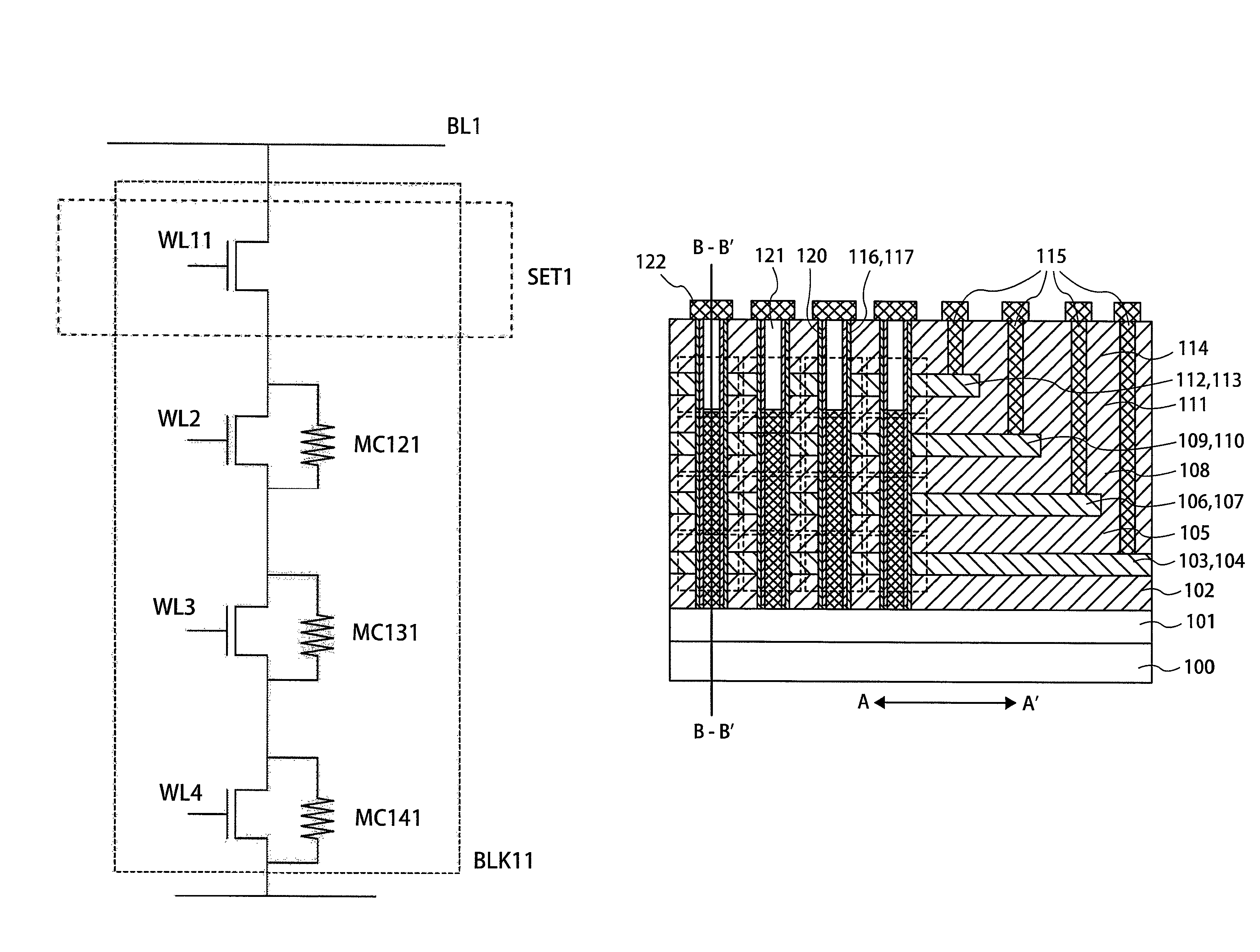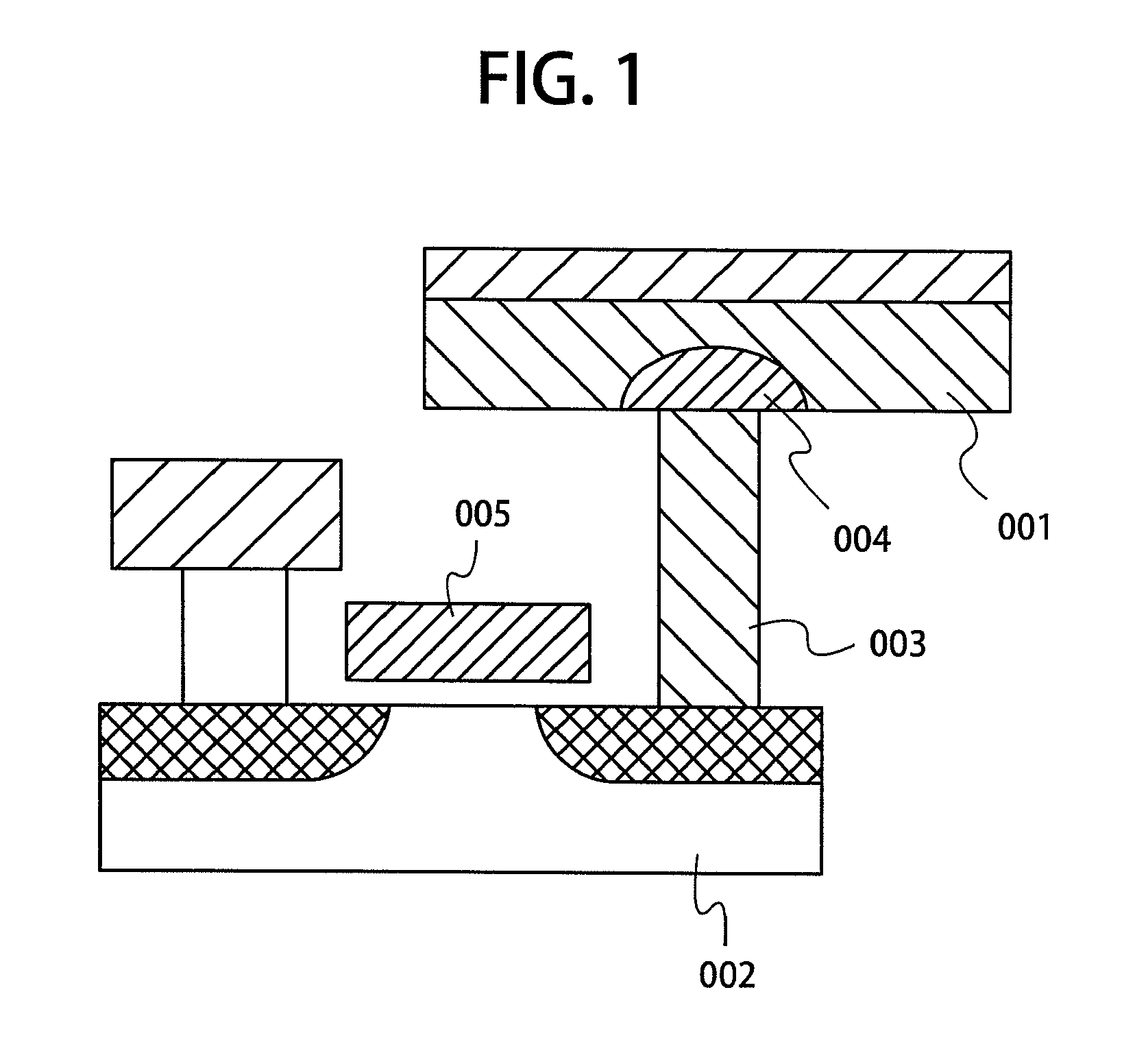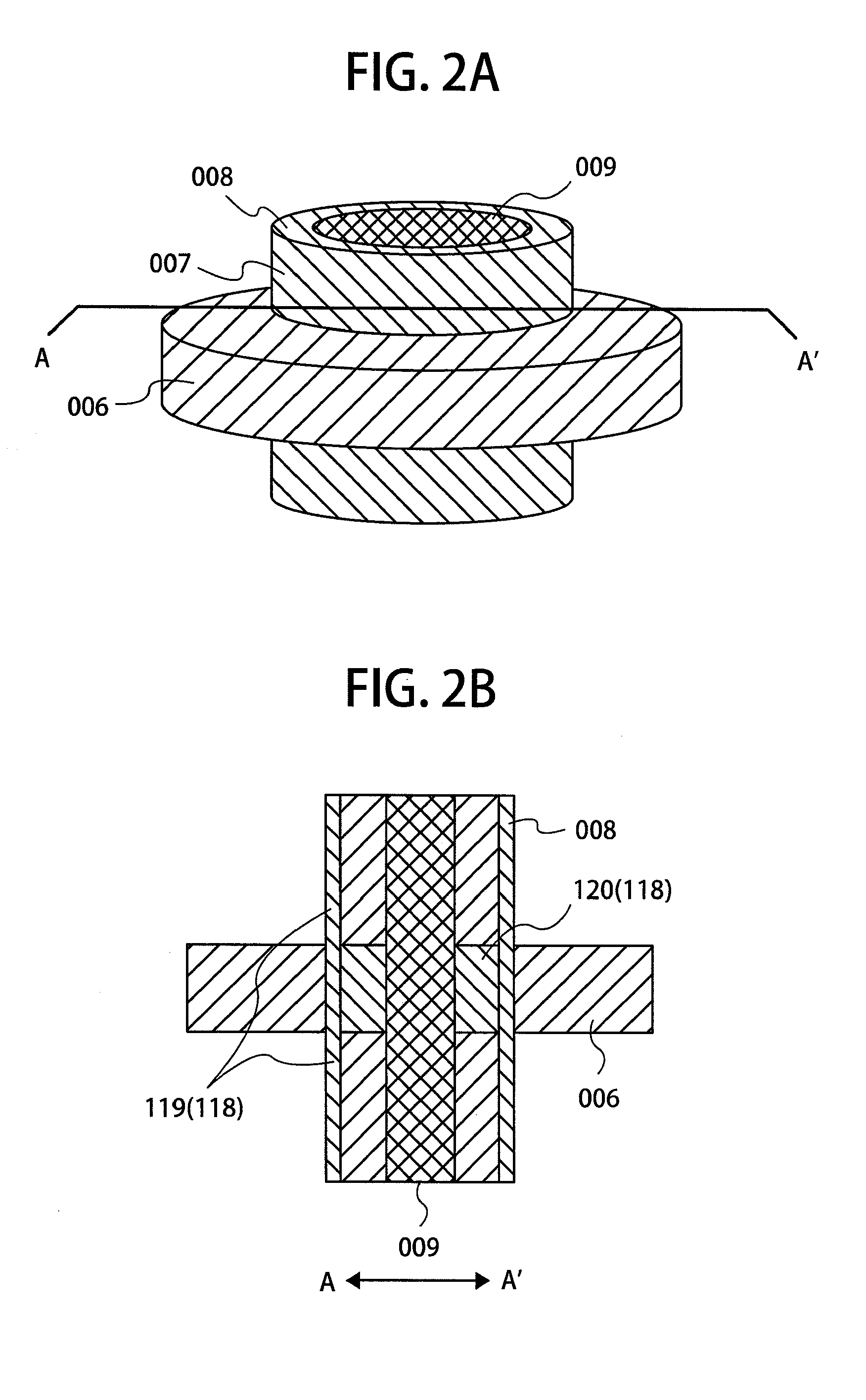Semiconductor storage device
a technology of semiconductor devices and storage devices, applied in semiconductor devices, digital storage, instruments, etc., can solve problems such as increasing the area of cells, and achieve the effects of increasing storage capacity, high reliability, and reducing the size of memory cells
- Summary
- Abstract
- Description
- Claims
- Application Information
AI Technical Summary
Benefits of technology
Problems solved by technology
Method used
Image
Examples
embodiment
[0048]A method of manufacturing a phase change memory according to an embodiment will be described with reference to the accompanying drawings.
[0049]FIG. 6 shows a cross-sectional view of a memory matrix in which a dopant diffusion layer 101 functioning as a contact layer on a substrate side of a memory cell is formed on a semiconductor substrate 100 including a peripheral circuit, and a first interlayer film 102 and a first polysilicon layer 103 are deposited on the dopant diffusion layer 101 in the stated order. FIG. 7 shows a top view of the memory matrix.
[0050]FIG. 6 is the cross-sectional view taken along a line B-B′ in FIG. 7. The diffusion layer 101 is formed through a known technique such as ion implantation with phosphorus or arsenic as dopant. The diffusion layer 101 may be patterned as a bit line pattern which will be described later, to conduct the operation of selecting a memory cell block. The first interlayer film 102 is made of, for example, oxide film SiO2, and form...
PUM
 Login to View More
Login to View More Abstract
Description
Claims
Application Information
 Login to View More
Login to View More - R&D
- Intellectual Property
- Life Sciences
- Materials
- Tech Scout
- Unparalleled Data Quality
- Higher Quality Content
- 60% Fewer Hallucinations
Browse by: Latest US Patents, China's latest patents, Technical Efficacy Thesaurus, Application Domain, Technology Topic, Popular Technical Reports.
© 2025 PatSnap. All rights reserved.Legal|Privacy policy|Modern Slavery Act Transparency Statement|Sitemap|About US| Contact US: help@patsnap.com



